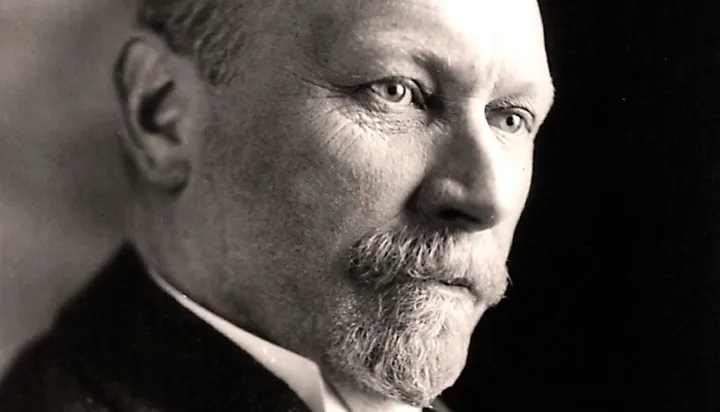BUSINESS REFLECTION
After the Bell: A paean to Smuts’s contradictory contribution to human rights

It might be ironic, but it was none other than Jan Smuts we largely have to thank for the UN Charter of Human Rights.
When I was a law student at Wits in the 1980s, one of my elective subjects was Human Rights Law. Part of the course was to write a long-ish essay broadly on the topic of international law and human rights. My guide in this process was the legendary Professor John Dugard, who had originated the course and subsequently went on to forge a formidable academic career around the subject.
I think it’s safe to say I was his worst student. I think it’s safe to say I was the Wits law faculty’s worst student. I never finished my degree; in my defence, I was a full-time journalist at the time and my final year coincided with the release from jail of Nelson Mandela. I was not going to miss that little journalistic endeavour in favour of the triviality of academic achievement and a respectable profession.
But I did take away something from my brief interaction with Dugard. He encouraged me to examine two things in the development of human rights around the world: the Nuremberg trials and the Charter of the United Nations.
At first, the two issues struck me as curious, but later the saffron robes of dawn appeared to me. The Nuremberg trials – the trials of the Nazi hierarchy after World War 2 – were significant for all kinds of reasons, not least their legal underpinning. To counter the allegation that this was the justice of the victors, the court had to discover, or at least claim, an alternative legal basis on which the individual cases would be brought. The Nazis had started the war and were of course responsible for the deaths of around 27 million people. You would think that would be enough. But as a legal construct, there is no such thing as murder in war; murder is the point, after all.
If you read the cases, the judges at Nuremberg did not confine themselves to strict international law, which focuses on the crime of plotting and waging an aggressive war. Most of the defendants were also charged not only with war crimes but also something new – crimes against humanity. And the reason lay firmly in the international revulsion at the Holocaust. In legal terms, the notion was simple; there are some crimes so horrific that even in the course of war, they are impermissible, even if they were a direct order. And further, they vest because people have certain inalienable rights that derive organically and automatically from nothing more, or less, than their humanity. Human rights were born.
Without even being conscious that the balance of history was tipping, the Nuremberg trials galvanised and coalesced ideas about human rights that had been floating around in philosophy and judicial codes, ancient and modern. Suddenly, they were all turbocharged by an undeniable and concrete example. Reading some of the transcripts of those trials was a revelation to me of how ideas form and change.
Right. Now zip, if you will, across the world to San Francisco where at roughly the same time, governments of the world were creating a new organisation to try and prevent the colossal disaster which had just befallen the world. And oddly, or perhaps not, human rights were once again a central issue.
And there is a tremendous irony here because even though his name is minimised, castigated, forgotten and derided, we South Africans know that one of our own was central to the process. That person was, of course, Jan Smuts. And Smuts in his letters attests to the new ideas of the time around the idea.
In very few publications around the world is Smuts’s contribution even vaguely acknowledged, because, well, it’s embarrassing. If you read the Wikipedia article of the creation of the United Nations, Smuts’s name is not mentioned once. Smuts was, by modern standards, an out-and-out racist. Even by the standards of the time, he was patronising and paternalistic towards not just black South Africans, and not just Africans in general, but Indians too, just for good measure. He is eminently cancellable – and was.
But, it is testimony to the vagaries of humanity and the ironies of history that we know that the modern United Nations, for better or for worse, was created by Smuts. At least, that is my opinion. And we know this because all of Smuts’s ideas and philosophy can be seen in its structure and pronouncements. And those include the preamble to the United Nations charter, which he wrote, and which includes the call: “We the peoples of the United Nations determined … to reaffirm faith in fundamental human rights”.
At the time of the creation of the United Nations, Smuts was regarded, particularly among the victors, as an extraordinary statesman and a renowned veteran; he was one of the few who had direct, personal experience of the Versailles treaty drawn up after World War 1, of which he was a famous critic. But he did write the Covenant of the League of Nations too. So, you know, experience.
Smuts’s contribution to the UN Charter was to counter the legalistic tone of what is now called the Dumbarton Oaks version, which did not even include a preamble. The leaders of today’s Commonwealth countries loved it and Smuts’s version went forward to San Francisco.
There were some changes: Smuts’s original version spoke of “basic human rights and fundamental freedoms”, but in the final version, which he also wrote, this was changed to “fundamental human rights”. There were other changes. According to the best take on this, IMHO, by Cambridge history professor Saul Dubow, the draft presented by Smuts for consideration at San Francisco pledged “to re-establish faith in fundamental human rights, in the sanctity and ultimate value of human personality, in the equal rights of men and women and of nations large and small …”.
“Personality” was changed to “person”, and behind this innocuous change lies a tale. Smuts was very taken with American poet Walt Whitman. For Smuts, personality wasn’t a euphemism for your character or your type. Dubow says the conception of “personality” was a key code word in Smuts’s philosophy of “organic holism”. And that is the key to what Smuts meant by human rights.
Holism was Smuts’s self-made philosophy, although to call it that is something of a stretch. Smuts’s friend HJ Wolstenholme regarded holism as “an impenetrable melange of metaphysical nostrums”. What a phrase … and this is his friend speaking! But to the extent that it’s coherent and understandable, one aspect of holism is the idea of a built person with an integral soul and a constructed character. Like Whitman himself, of whom Smuts wrote when he was much younger, “that rarest flowering of humanity – a true personality; strong, original, organic”.
For Smuts, the way to reestablish humanity was for each component part to find its organic place in the whole and in this case, that whole was the United Nations. But, paternalist that he was, freedom was one thing but keeping the peace was another. And that required recognition of dominance; hence the Security Council and the notorious veto power granted to the biggest players – now the curse of the organisation … or perhaps not.
San Francisco was supposed to be Smuts’s coronation, but instead, it was his downfall. He was embarrassed by the Indian delegation, which, quite reasonably, publicly pointed out his hypocrisy as the sitting head of state of the country that contradicted the very principles set out in the charter. A few years later, South Africa was one of the notorious eight countries that did not sign the UN Charter of Human Rights. The UN was a continual thorn in the side of the apartheid government, and for all its other failures, it deserves credit for that.
Smuts returned to SA and lost the election to the National Party, a party so racist it made Smuts seem positively angelic. And then he promptly died. Yet, in commemorating Human Rights Day on Saturday, I would like to tip my hat to Smuts. He did more for the idea of human rights than he gets credit for.
Dubow says Smuts wanted to restore personal dignity and spiritual values to a world that had endured one form of totalitarianism and was now threatened by another: communism.
In his time, in his position, that was a significant little triumph. The definition of human rights changed and adapted, as it would, as the world did.
But it also lasted. Kudos. DM



















 Become an Insider
Become an Insider
Thanks for writing a negative positive article about him. If you want to hold your job you have to be woke and point out the negative. You still know very little about him – what about his brilliance as being the second brightest student ever in the great university of England. He read the bible in the veld in the ancient Jewish language. He was the creator of the new government after the Anglo Boer war and and and.
Please define “woke”. I’ve seen you cast it as an aspersion in several comments and am curious to know how you define it.
It’s Human Rights Day on Saturday?
Running short on subject matter mr. Cohen?
Embarrassing, no. The British spin machine purposely airbrushed Smuts’ contributions to the international affairs and, in particular, the confidence Churchill had in his friend’s opinion. Smut’s Holism proposed equality. The very reason that Smuts backed the formation of the Union was because he believed that in time equality would prevail and universal suffrage would lead to a successful outcome. He believed that the South African Union would provide an example for the future European union to follow.
I suggest earnestly that in your role you could have a positive influence in the resolution of the really serious problems our country faces at this time. If we, as a collective, don’t follow that path there could well be a time when the so-called “apartheid” gainsayers could well say “I told you so”
I really like your writing Tim. Always (or at least nearly always) interesting, sometimes funny. That is a most interesting piece. Thank you. I am not a fan of Smuts but I do think that his contributions as well as his liabilities should be remembered. Cancelling is not an option.
An interesting and complicated man. Like Churchill he had racist, paternalistic views, but he was also a force for good in many ways, and a world statesman who was respected and listened to by world leaders. And he was actually a progressive thinker, considering his people at the time, who ultimately rejected him for not being racist enough. At the time of his death, pretty much all of Africa was still under racist colonial rule. His legacy has to be considered in the round.